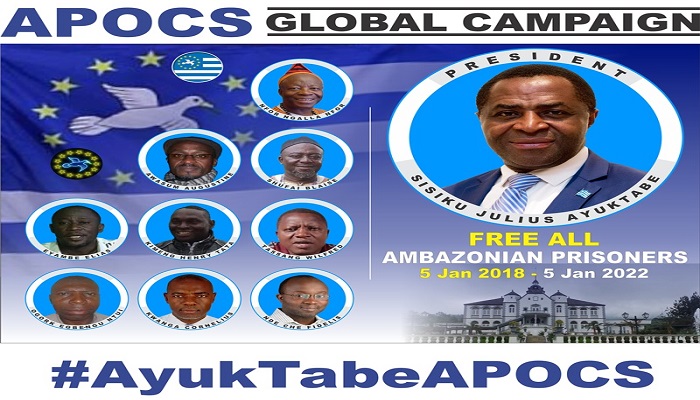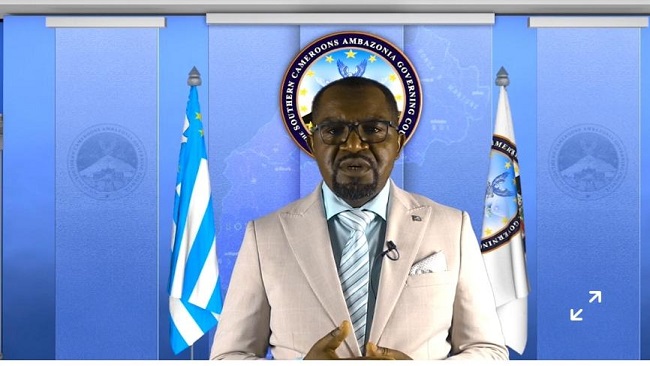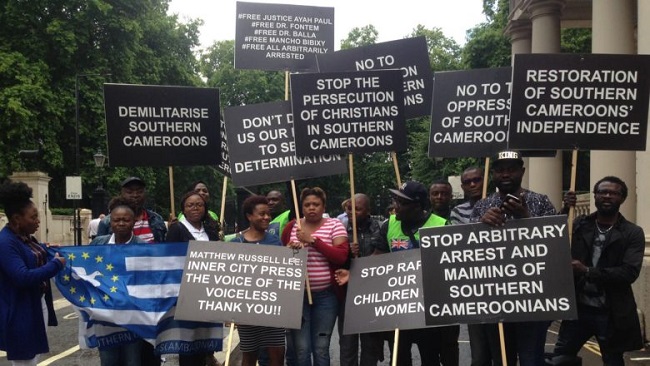30, September 2019
Grand national dialogue falter as separatists, politicians boycott 0
Government-led talks to end a two-year-old separatist insurgency in Cameroon faltered before they began on Monday as separatists and opposition politicians boycotted the event.
President Paul Biya initiated the week-long national dialogue in an effort to calm violence between militias and the army that has killed more than 1,800 people and displaced more than 500,000, according to United Nations estimates.
But Anglophone separatists, who are trying to form a breakaway state called Ambazonia in the country’s minority English-speaking regions, immediately dismissed the idea because their conditions for dialogue have not yet been met, they said.
“No Ambazonian will take part in Biya’s charade,” said Cho Ayaba, a leading member of the Ambazonian Governing Council.
The council has called for a withdrawal of the army from the English-speaking Southwest and Northwest regions, for international arbitration over the crisis and for the release of all arrested separatists.
Cameroon’s main opposition party is also refusing to attend until the government releases its leader and former presidential candidate Maurice Kamto, who was arrested in January and could face the death penalty for leading protests against an election last year that he denounced as fraudulent.
Biya, 86, won re-election in that vote, extending his nearly four decades in power.
The Anglophone conflict began after the government cracked down on peaceful protests in 2016 in the English-speaking regions by teachers and lawyers complaining that they were being marginalized by the French-speaking majority.
Demonstrators were shot dead and the movement became radicalized. Now at least a dozen groups have taken up arms and have carried out deadly attacks on army posts and the police. The army has responded by burning villages and shooting dead civilians in the English-speaking areas.
Tens of thousands have fled to Nigeria or sought refuge in French-speaking Cameroon.
Opposition parties, civil society groups and representatives of the Catholic Church were present in the main conference center in the capital Yaounde on Monday.
Prime Minister Joseph Dion, an Anglophone appointed early this year in part to jump-start negotiations, was also present.
Dion said the talks were held to end acts of violence and to enable the Northwest and Southwest regions to regain the “necessary serenity”, adding that “all men and women who love peace” had been invited.
Cameroon’s linguistic divide goes back a century to the League of Nations’ decision to split the former German colony of Kamerun between the allied French and British victors at the end of World War One.
For 10 years after the French- and English-speaking regions joined together in 1961, the country was a federation in which the Anglophone regions had their own police, government and judicial system. Biya’s centralization push since he came to power in 1982 quickly eroded any remaining Anglophone autonomy.
Now, moderates who have long called for a return to some form of federal system to ease tensions say their voices have been drowned out by secessionists on one hand and Biya on the other.
“It is farcical to not have a commission to discuss federalism, which is at the core of all this,” said Akere Muna, an opposition politician and former presidential candidate who is participating in the talks. “Now the federalists are a minority and the separatists are the majority.”
By Besong Eunice Nchong






























30, September 2019
US: Trump warns of ‘civil war’ if Democrats impeached him 0
US President Donald Trump is warning that the Democrat-driven impeachment proceedings and any move to oust him from office amount to “treason” and would spark a civil war, prompting outrage from a Republican congressman.
Trump tweeted a conservative pastor’s comment that removing him would provoke a “civil war-like fracture” in America.
US Representative Adam Kinzinger, a former Air Force pilot who represents an Illinois district Trump won in 2016, tweeted on Sunday, “I have visited nations ravaged by civil war. … I have never imagined such a quote to be repeated by a President. This is beyond repugnant.”
Trump on Monday was thundering through a new round of counter-punches against his opponents by hammering home the suggestion that they should be arrested and charged with treason and could launch a civil war — or a combination of those.
His top foes were the whistleblower whose complaint launched the House’s impeachment investigation and the congressman leading it, Intelligence Committee Chairman Adam Schiff.
“Arrest for Treason?” Trump tweeted of Schiff on Monday in one of many presidential suggestions that his opponents should be investigated for operating under their constitutional duties and within the law.
Treason is extremely narrowly defined, both in the nation’s founding document and in federal law.
The Constitution states: “Treason against the United States, shall consist only in levying war against them, or in adhering to their enemies, giving them Aid and Comfort.”
Note the word “only.” Treason occurs when a US citizen, or a non-citizen on US territory, wages war against the country or provides material support, not just sympathy, to a declared enemy of the United States.
That came after Trump tweeted a comment from the Rev. Robert Jeffress, pastor of the Southern Baptist megachurch First Baptist Dallas.
“If the Democrats are successful in removing the president from office, it will cause a civil war-like fracture in this nation from which our country will never heal,” Jeffress said on Sunday on Fox News Channel’s “Fox & Friends Weekend,” which Trump posted a few hours later.
(Source: AP)